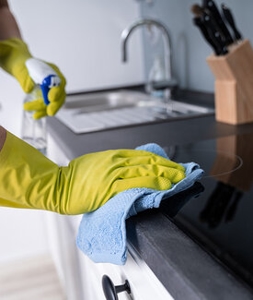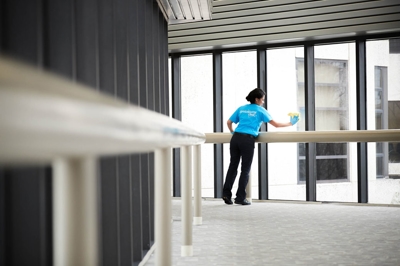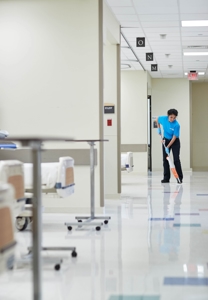How To Avoid The Spread Of Infection In Emergency Rooms
Emergency rooms see hundreds of patients daily. With so many pathogens floating around, it's not surprising that sick patients can become even sicker while they're in the ER. Sitting in waiting areas with contagious patients, being exposed to infections in examination rooms and even being treated with inadequately cleaned medical equipment can cause infections to spread fast. Even healthcare workers are at risk of being exposed to the infections and diseases around them.
So, how can medical staff and facility managers help combat the spread of illness? Infection prevention and control requires strong levels of diligence, foresight and attention to detail. Find out the 5 best ways to stop the spread of infection with help from the experts at ServiceMaster Clean.
5 Ways To Reduce The Spread Of Infection In Emergency Rooms
According to the Centers for Disease Control and Prevention (CDC), about 1 in 25 hospital patients get at least one healthcare-associated infection (HAI) on any given day. Since the number of ER visits seems to be on the rise, it’s crucial that healthcare workers take the necessary steps toward keeping their facilities clean, sanitized, and disinfected as needed. Use the following 5 steps to reduce the spread of infections in your hospital.
1. Keep The Environment Clean
Crowded waiting rooms need to be vigorously and disinfected daily to help mitigate pathogens. While staff cleans, ensure that they fully document their routine so a record can be consulted. While thorough cleaning throughout the day does make a difference in reducing infections, nothing beats a professional clean. Have a reputable hospital cleaning company disinfect your facility daily, too.
2. Sterilize All Equipment.
Medical equipment that is improperly cleaned, sanitized and disinfected can also increase the spread of infection. Some of the most common HAIs include surgical site infections, catheter-associated urinary tract infections, ventilator-associated pneumonia and central line-associated bloodstream infections. To ensure that patients and staff members are protected from infections, sterilize all equipment before and after use. Disposable equipment should be thrown away immediately in the proper waste containers.
3. Follow Proper Hand Hygiene.
Handwashing with antimicrobial soap is one of the best ways to help control infectious bacteria. Healthcare workers should follow proper hand hygiene throughout the day, including washing their hands before and after treating each patient. Hand sanitizer should also be readily available to staff members for times that call for a quick refresh.
4. Isolate Contagious Patients.
Robust screening practices are beneficial in identifying individuals at risk of spreading their illness to the surrounding patients and attending staff. If a patient is coughing or displaying flu-like symptoms, it's crucial that triage nurses provide the patient with a facemask and move them away from others.
5. Keep Staff Safe.
Don't leave staff vulnerable. Facility managers must ensure that healthcare workers are equipped with personal protective equipment (PPE), including liquid-resistant medical gowns, facemasks, gloves and protective eyewear so they can safely interact with sick patients. Regular vaccinations against common infections and diseases are also strongly recommended.
For extra protection against the spread of infection, call on the experts at ServiceMaster Clean. Our healthcare cleaning services help with risk reduction, environment improvement and infection control and prevention. Using the best practices and procedures from leading organizations in the industry, our comprehensive, customized cleaning programs can help keep your facility’s environment safe for patients, visitors, and staff.








